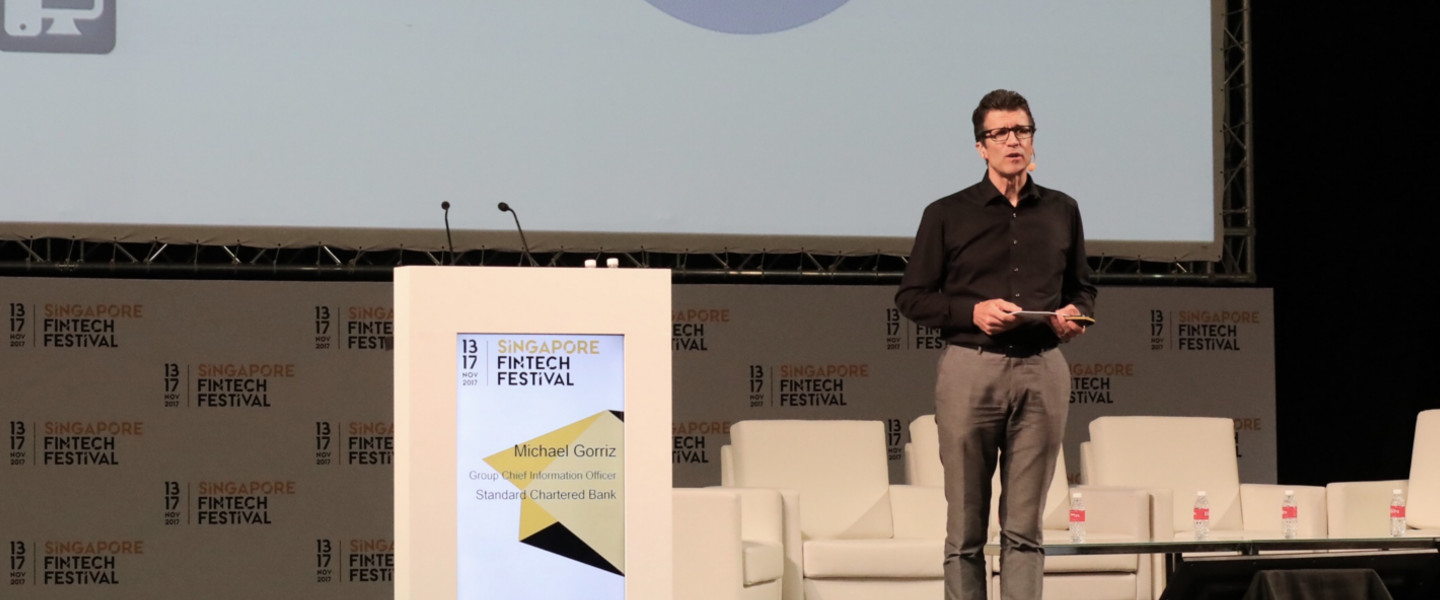Embracing disruption: the future of banking


A new type of chatbot is coming. There are three words that will revolutionise instant chat with institutions: ‘natural language understanding’. While these words might not sound as exciting as buzzwords such as big data, internet of things (IoT) or artificial intelligence (AI), the ability of a computer to understand and respond in the language you use to talk to it will make a big difference. The most well-known application for this is the chatbot, which allows you to text a query to a messaging service and receive a response in the same language you typed it in. Spoken language versions of this technology will ease communication between humans and machines, meaning customers will be able to interact more quickly and efficiently with everyday banking systems.
AI: having a wealth manager at your fingertips. We can use AI to give our customers tailored wealth advice. It could be a simple question of what should I invest in? AI can help by analysing your existing portfolio, the current market trends, and the advice that our wealth management specialists provide – and then combine all this information and give you a personalised recommendation.
Blockchain: the answer to secure, real-time transactions. In the long term, blockchain is going to help make financial systems more efficient. This technology allows the realisation of verifiable, real-time transactions in and across many different areas. If you want, for example, to remit money from one mobile wallet to another in a different country and across different legal entities, blockchain technology allows this transaction to take place in real time.
If we combine the trust of our customers with the convenience technology brings, we will create the banking of the future
Watch our film on top trends in banking
Saving you time: from days to minutes. Across our regions we’re experimenting with new ways of using digital to make banking faster and simpler for our clients and broadening the client segments we can serve across fast growing markets. Being digital allows us to grow quickly in fast growing markets in tandem with client needs, without having to invest in physical branches. In India, we’re now operating real-time onboarding, cutting the process from a couple of days to a couple of minutes. We can bring customers into the bank much more quickly than before, freeing up time to offer our customers a better service. Meanwhile, in Cote d’Ivoire, we’ve gone fully digital and fully mobile. There are 70 services on our app, and with just the tap of a finger, customers can choose the ones that are relevant to them. Being digital also allows us to serve clients who are used to doing everything on their mobile phones and expect banking to be delivered that way. In Hong Kong, we’ve announced that we’ve applied for a virtual banking licence to provide banking services to digitally-savvy clients.
Invent and innovate: the future of banking. For us, what’s most important is to serve clients in the best possible way. Embracing the disruption is essential. We’re working with fintechs, technology firms and industry partners to explore how we can use technology to revolutionise banking services for our clients. Reinventing the future of banking requires understanding that we won’t always have all the answers ourselves. This is just one of the ways that we’re embracing disruption, and it’s an important mindset to have. I truly believe that technology is now the core of banking, because it makes banking better.